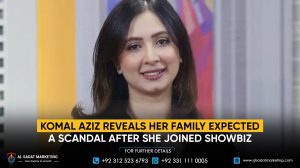OpenAI has launched its first-ever AI-powered web browser called ChatGPT Atlas, marking a major step in bringing artificial intelligence directly into daily internet use. The browser is now available for macOS users, with versions for Windows, iOS, and Android coming soon.
Unlike traditional browsers that simply display information, ChatGPT Atlas turns browsing into an interactive experience powered by AI. It can summarize web pages, fill out forms, write emails, and complete multi-step online tasks, all within the same tab. The goal is to make the internet more efficient, natural, and conversational.
ChatGPT Atlas is built entirely around OpenAI’s chatbot technology. Users can chat directly with ChatGPT in a side panel while browsing. This panel can be toggled on or off at any time. The assistant helps with everything from comparing products to finding hotels or creating trip plans.
OpenAI CEO Sam Altman described Atlas as a “living blueprint” for how AI should work alongside humans. The browser doesn’t just respond to queries; it actively assists users in completing actions online.
One of the key features is memory, which allows ChatGPT to remember past interactions and browsing history (with user consent). For example, if you searched for apartments or read articles last week, Atlas can recall those details and continue the conversation without you repeating information. These memories are private and can be edited, viewed, or deleted anytime.
Another major innovation is Agent Mode, available for ChatGPT Plus, Pro, and Business users. This feature enables Atlas to perform complex tasks such as planning an event, comparing multiple products, or collecting data from various sites. It can open tabs, extract information, and organize it into slides or notes, acting as a real assistant rather than a static search tool. However, it cannot download files or access personal storage without permission.
OpenAI has also emphasized privacy and control in Atlas. The browser has built-in transparency features that clearly show when ChatGPT is active. Users can disable memory, turn off AI interactions for specific sites, or use incognito mode for complete privacy. Parental control options are also available for families.
ChatGPT Atlas enters a growing field of AI-based browsers, such as Opera Neon and Perplexity’s Comet. However, OpenAI’s deep integration with ChatGPT, one of the world’s most popular AI models, gives it a strong competitive edge. The experience is designed to be intelligent and personalized, rather than just fast or minimal.
By connecting conversations, tasks, and memories in one place, ChatGPT Atlas represents a new chapter in how people browse and work online. While it may take time for users to adapt to an AI co-pilot in their browser, the potential for increased productivity and smarter web navigation makes Atlas one of the most promising innovations of the year.










